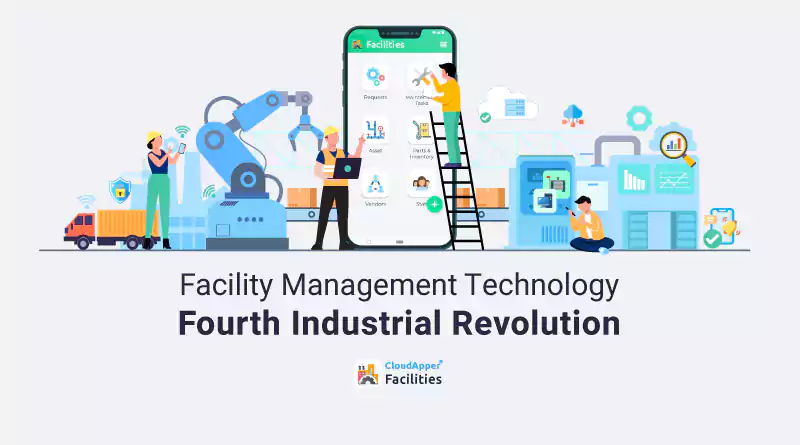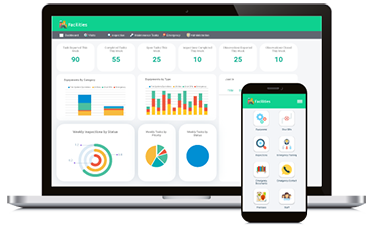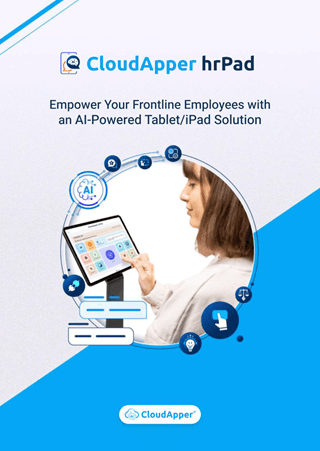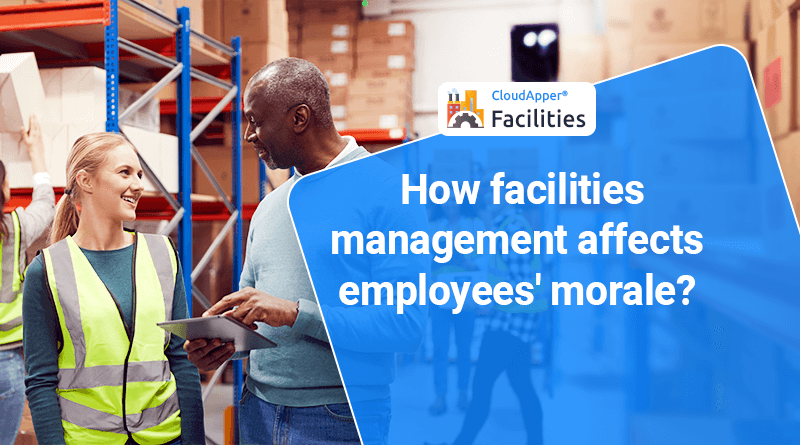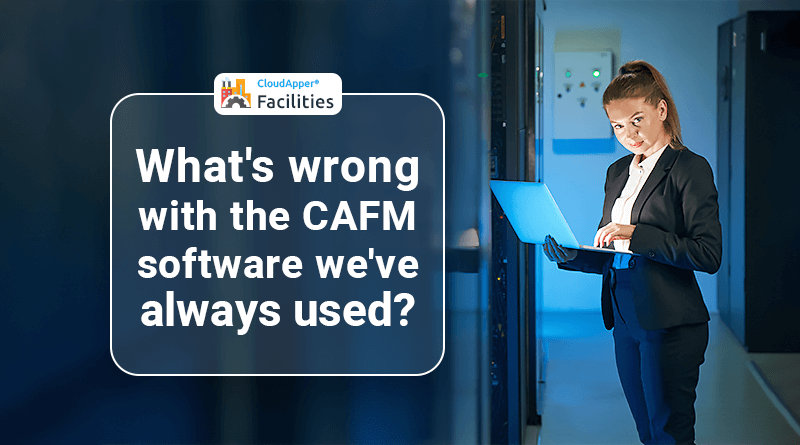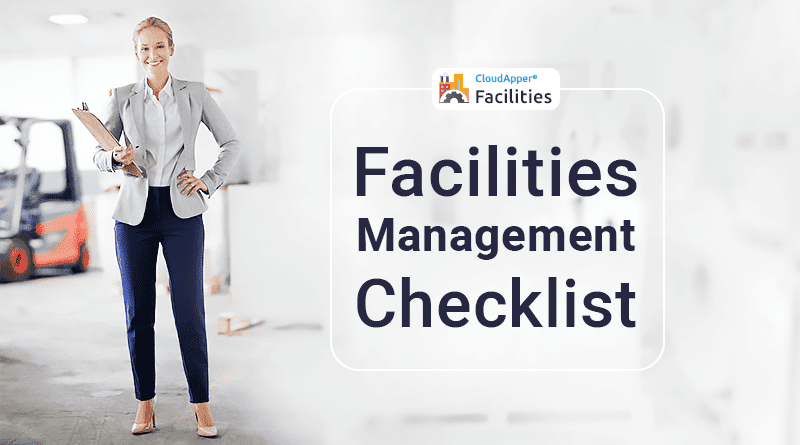Table of Contents
The latest technological advancements in smart technology aim to bring about a rising generation of young people. With the ever-changing workforce flourishing in a real-time ‘anytime, anywhere’ economic system, they are helping to change the business culture.
The digital maturity enhancing the current business processes, the use of technology in traditional enterprises, and the growing percentage of millennials in the workforce are creating a more competitive environment between businesses and their need to incorporate technological aspects into the process to increase productivity and enhance user experiences.
You must use other tools, controls, intelligence, and the strategic application of available resources to keep up with the demands created by the latest developments in several sites within a portfolio.
In order to succeed in the ever-growing and competitive global market, companies will continue to profit from the advantage of facilities management technology in a massive way to revolutionize the way companies make use of their resources and staff. Doing so creates a win-win situation for both employees and companies operating in the field.
The facilities management industry has seen its growth from a sluggish resource to a vital support service that improves the relationship between the facilities, pleases all those involved, and effectively empowers the companies.
How Can We Define Digital Transformation, and Why Is It Important for the Management of Facilities?
Digital Transformation is the application of digital capabilities to products, processes, and assets to enhance efficiency, increase value to customers, manage risk, and discover new opportunities for monetization.
For business, the term “data-driven digital transformation” is the use of data collected in real-time analysis and forecasting of problems to continuously enhance the business’s value and remain ahead of the competition. This can ultimately improve the performance of the company, optimize resources and flexibility, and assist companies in making timely and well-informed decision-making.
In the wake of technological advances across all business sectors and industries, the digital transformation of the facilities management (FM) industry is becoming equally vital. It is due to the shift in mindset that requires every stakeholder to take part in the pursuit of adding value and creativity to the ecosystem and to be able to meet the larger requirements of the business.
The traditional models for FM operations face a lot of budgetary constraints that limit the ability to innovate and improve efficiency. But with the help of digital business techniques, we are able to discover hidden data sources to gain more reliable and relevant insights, making more use of the resources that already exist. Utilizing technology that is smarter, such as Facility Management Software, makes the pen-and-paper-based systems more efficient, eventually aiding in cost reduction.
With a thorough understanding of why the FM industry is experiencing fundamental shifts in its operations and transformative value, it is important to take a look at the positives that are lining up and aiding in the transformation of FM from a cost-effective, passive center to a value-driven investment.
Procure Operational Leads
The traditional reliability of manual work and hardware has now proven to be inflexible and rigid because they lack optimization and are difficult to manage. The plan is to establish smart workflows that can monitor the performance of assets, anticipate and eliminate anomalies and oversee the assets.
With facility management software, an additional layer of enhanced features is available to enable the use of predictive interventions and smart insights within the business processes. This will allow you to make well-informed purchase decisions, as well as ongoing speculation on investment opportunities.
Continuous Optimisation
FM operations can attain high efficiency and speed in regular tasks by removing unnecessary paperwork and manual labor. Performance analytics based on data and custom KPIs can help make data-driven decisions that drive the development of predictive models for operations, identifying anomalies in the asset’s performance. This enables a faster and more efficient approach to solving problems.
Predictive Analysis
The constant stream of data and working with technology is pushing facility management to new levels. The actionable information gathered from software for managing facilities can help in optimizing the use of resources, staff, and sustainability. Multiple time series could provide an entirely new stream of data regarding cost optimization, inventory management, and consumption patterns. The results include lower operating costs and reduced downtime for assets.
Keep an Eye on Your Portfolio
Centralized facility management systems for data-optimized workplaces and mobile-enabled Technologies allow for making operations consistent across different sites. They also facilitate the tracking of equipment, assets, buildings, and workflow systems that were previously quite complex and susceptible to failure.
A centrally managed system that can only effectively handle energy, security, and operational information on one platform is likely to require a smaller, scattered workforce. This type of centralized source can provide a panoramic of the entire business and allows for easy monitoring.
If you conduct a thorough analysis of data on budget and asset data, repairs or updates that are related to the equipment will be made quickly, and that also is possible with budget and maintenance information. This can help monitor the machinery’s time of operation and reduce downtime, and also extend the lifespan of the equipment.
Assist With Your Issues and Ensure You Are Getting Regular Maintenance
In a world where everything is changing, and real-time operation is now required, can the strategies use remain static?
It is essential to detect faults early to ensure a smooth experience for customers and a smooth business operation. If the initial fault was discovered when the damage was already caused, the engineer would immediately react, which could lead to chaotic and uncomfortable circumstances.
However, mobile apps can now be used to report real-time facility data 24 hours per day. The information gathered can be used to determine if the device is operating appropriately. In the event of an anomaly, the early identification of replacement reminders or a malfunction will speed up the entire procedure.
The fourth industrial revolution is moving faster and more radically than any previous ones. The ability to access previously inconceivable volumes of data, use technology in all chores and adopt value-driven strategies within the FM industry increases the control over every other task in operation. This provides efficient solutions that are sustainable and save money.
The new paradigm of technology-driven facility management has changed the traditional way of using experts, assets, and funds. It is now taking a prominent position in the market and delivering remarkable results. This has always been the sector that has discovered bottlenecks in business processes and devised solutions to overcome them.
The current consensus in technology anticipates more radical shifts. It will see increased funding in research and development as well as regulations for new technologies and devices, value-driven strategies in FM, and their availability to companies of all sizes.
FM is the primary factor in the value of property by offering rapid response, better strategies for managing, and solutions. Every stakeholder in the related industry is able to benefit; clients receive exceptional services and experiences, while owners earn more money. Most importantly, facility managers are at the forefront of enabling the process.
What is CloudApper AI Platform?
CloudApper AI is an advanced platform that enables organizations to integrate AI into their existing enterprise systems effortlessly, without the need for technical expertise, costly development, or upgrading the underlying infrastructure. By transforming legacy systems into AI-capable solutions, CloudApper allows companies to harness the power of Generative AI quickly and efficiently. This approach has been successfully implemented with leading systems like UKG, Workday, Oracle, Paradox, Amazon AWS Bedrock and can be applied across various industries, helping businesses enhance productivity, automate processes, and gain deeper insights without the usual complexities. With CloudApper AI, you can start experiencing the transformative benefits of AI today. Learn More
